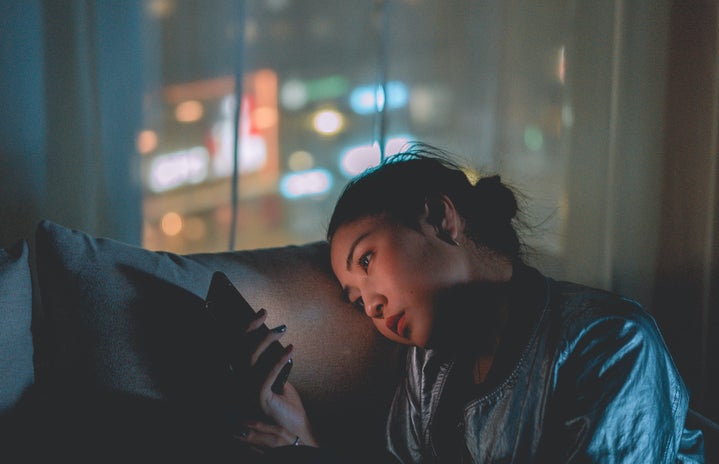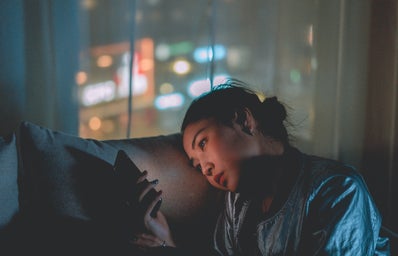It’s 8:30 in the morning and the sun begins to spill through your blinds. You stretch your arms out and casually roll onto the other side of the bed. You’re pretty sure that today is Wednesday. After all, each day seems to blend into the next. You reach for your phone that’s nestled in your comforter beside you, as a result of you passing out last night during Tik Tok ‘black hole’ that had you scrolling until 2 am. You open your phone and immediately check all of your social media platforms. The day seems to quickly waste away until, before you know it, it’s time to do it all over again.

Between the constant bombardment of perfectly edited Instagram photos that hinder self-esteem, and the obsessive scrolling through Tik Tok’s ‘For You Page’ that’s definitely affecting your sleep schedule, it’s important to be aware of when and how often we engage with social media.
The Risks Associated with Reward
Using social media activates the brain’s reward system, and has a reinforcing nature that is very compelling to users. These platforms have been designed to have addictive properties, and are often linked to both depression and anxiety. However, despite the well-known negative effects, we keep coming back. Even when you check your Facebook feed and it makes you feel down, you’ll still feel compelled to re-check the app 5 minutes later. Why? Because the outcome is unpredictable. Think of social media like slots at a casino- if you always knew you were going to lose money, you would probably never play. The reason people keep coming back is because the outcome is unpredictable- and the same concept applies to social media. You never know how many likes you’ll get on your next post, or who is going to view your story. The aspect of unpredictability is what keeps us engaged with these platforms.

Distract Yourself from the Distraction

Though options can feel limited, there are other ways to keep yourself occupied during the long hours of lockdown. Reach out to those friends and family you’re missing and video chat with them. Sit down and dive into the book that’s been collecting dust on your shelf. Play games with your family or the people you’re living with. Find ways to get active, either in your home or safely within your community. Set a time limit on your phone for each social media app, so you can monitor how much time you spend aimlessly scrolling on apps. Perhaps consider devoting as little as an hour a day where you put down all technology (if possible). It’s too easy to turn a quick ‘phone check’ into an hour of useless social media time. Though you don’t have to quit social media altogether, finding alternative ways to stay busy will do a lot of good- and might even make you feel happier altogether.



